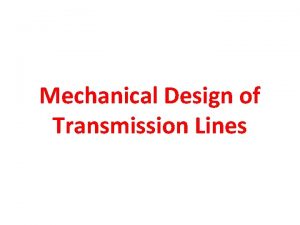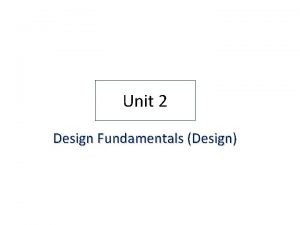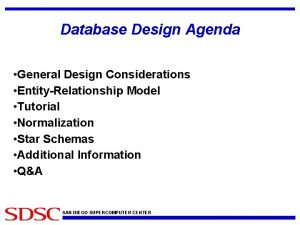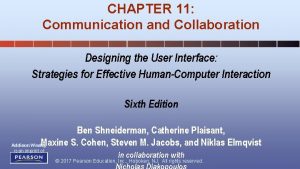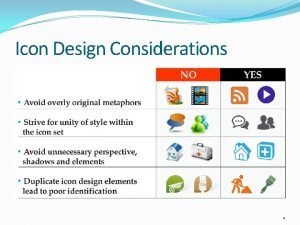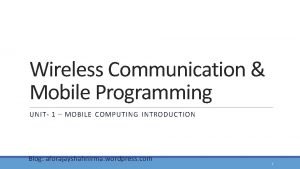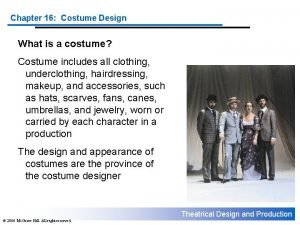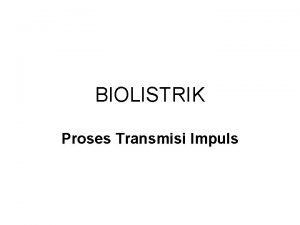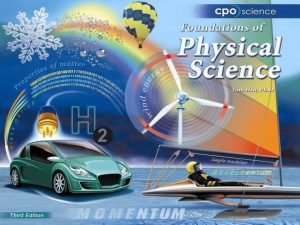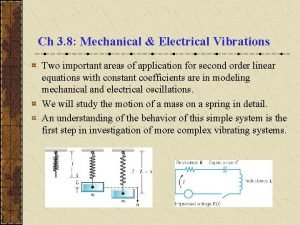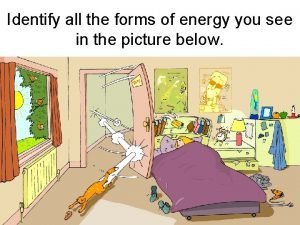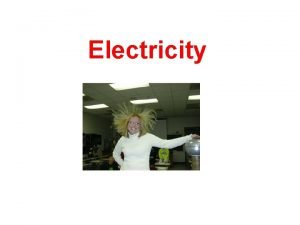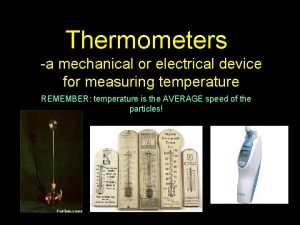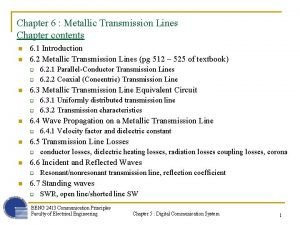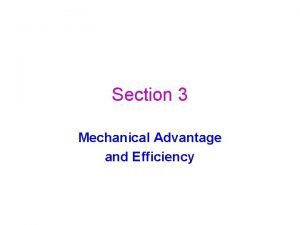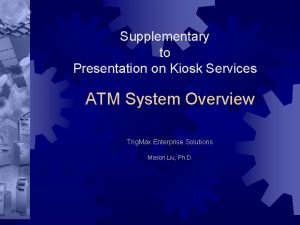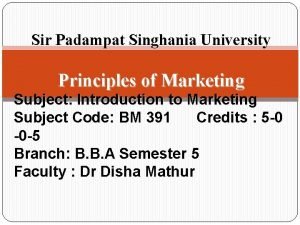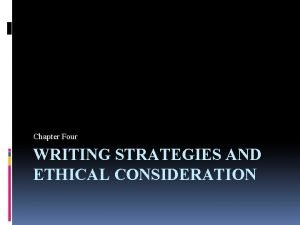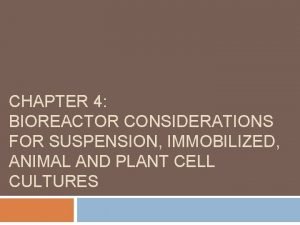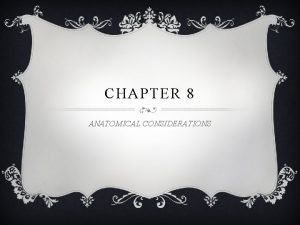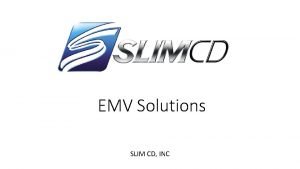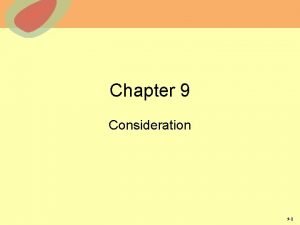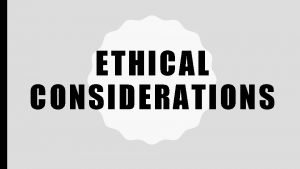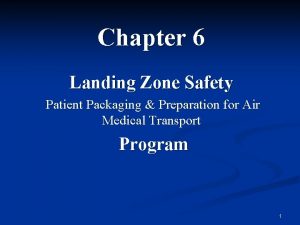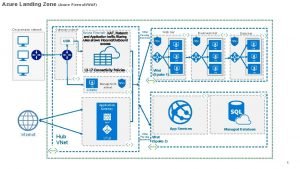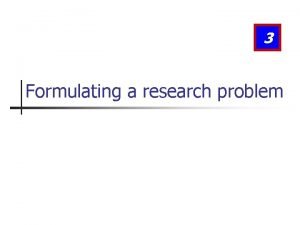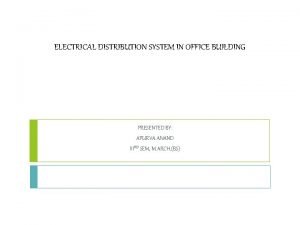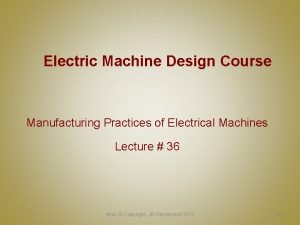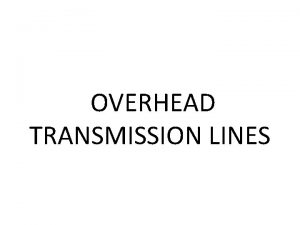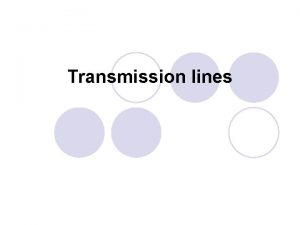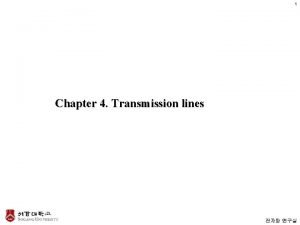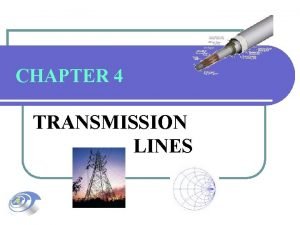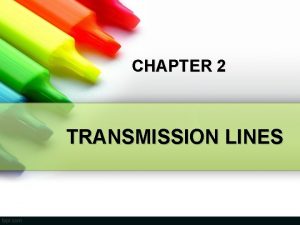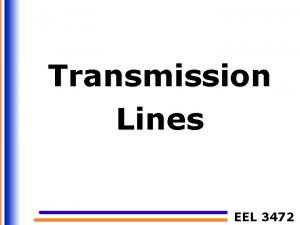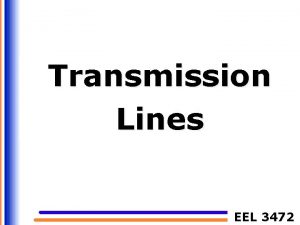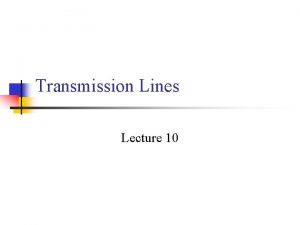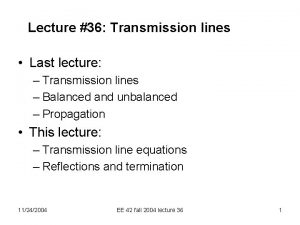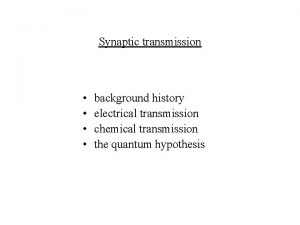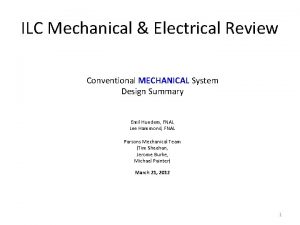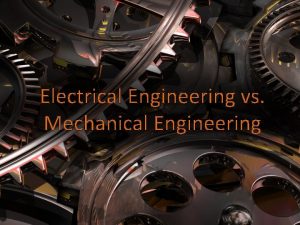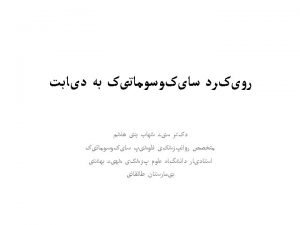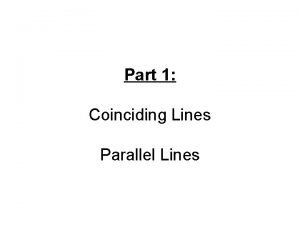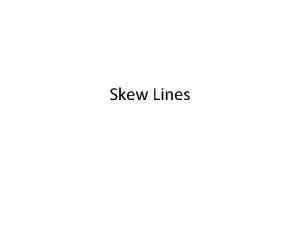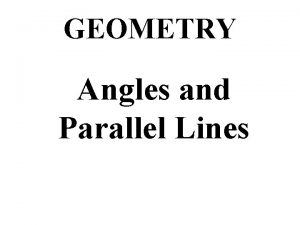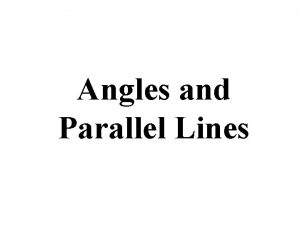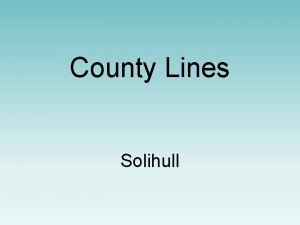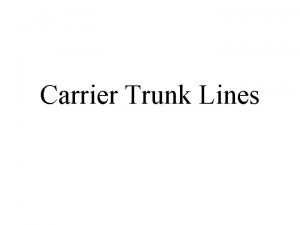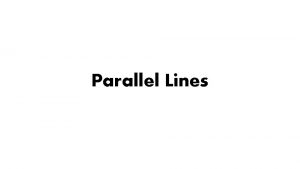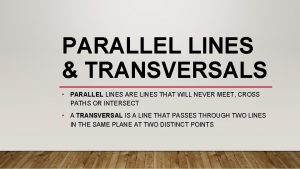Mechanical Design of Transmission Lines General Considerations Electrical














































- Slides: 46

Mechanical Design of Transmission Lines

General Considerations Electrical Considerations for T. L. Design: • Low voltage drop • Minimum power loss for high efficiency of power transmission. • The line should have sufficient current carrying capacity so that the power can be transmitted without excessive voltage drop or overheating.

• Conductivity of Conductor: R = ρ. L/A , or R = L/Ϭ. A Where: L: Conductor length. A: Conductor cross sectional area. ρ: resistivity Ϭ: Conductivity (Ϭ= 1/ρ)

• The conductor conductivity must be very high to reduce Conductor resistance R and hence reduce losses PL= 3 I 2. R

Mechanical Considerations for T. L. Design: • The conductors and line supports should have sufficient mechanical strength: - to withstand conductor weight, Conductor Tension and weather conditions (wind, ice). - The Spans between the towers can be long. - Sag will be small. - Reducing the number and height of towers and the number of insulators.


• Heat expansion coefficient must be very small. Rt = R 0. (1 + α 0. t) αt = α 0/(1+ α 0. t) α t is the heat expansion coefficient at t.

TYPES OF CONDUCTORS MATERIALS

1 - All Aluminum Conductors (AAC) lowest cost – low mechanical strength Used for small span



2 - Aluminum Conductor Steel Reinforced (ACSR) 1 - Steel strands 2 - Aluminum strands ACSR (26/7)





Advantages of ACSR • High mechanical strength can be utilized by using spans of larger lengths. • A reduction in the number of supports also include reduction in insulators and the risk of lines outage due to flash over or faults is reduced. • losses are reduced due to larger diameter of conductor. • High current carrying capacity.




Types of Supports • Wooden Poles • Reinforced Concrete Poles • Steel Poles • Lattice Structure Steel Towers

Wooden Poles





Reinforced Concrete Poles



Steel Poles



Types of Towers 1 - Suspension Tower 2 - Tension Tower 3 - Angle Tower 4 - End Tower

1 - Suspension Tower


2 - Tension Tower


3 - Angle Tower

4 - End Tower This type of towers exists in the beginning and at the end of the line which exposed to tension in one side.

SAG AND TENSION CALCULATIONS

Sag of Transmission Lines Sag of T. L depends on: - Conductor weight. Span length, Tension in the conductor, T Weather conditions (wind , ice). Temperature.

Minimum Clearance between the ground and the conductor k. V 0. 4 11 33 66 132 220 400 C (m) 5. 5 6. 0 6. 2 7. 0 8. 4

Conductor Spacing = (S )0. 5 + V/150 Where: S: Sag in meters. V: Line voltage in k. V.



 Mechanical design of transmission line
Mechanical design of transmission line Durite
Durite Conservation of tooth structure
Conservation of tooth structure Database design considerations
Database design considerations Collaboration design considerations
Collaboration design considerations Biopharmaceutic considerations in drug product design
Biopharmaceutic considerations in drug product design Myharper blackboard
Myharper blackboard Ethical issues of experimental research
Ethical issues of experimental research Design considerations for mobile computing
Design considerations for mobile computing Practical considerations for costume design might include
Practical considerations for costume design might include Transmission of electrical impulses
Transmission of electrical impulses How to convert mechanical energy to electrical energy
How to convert mechanical energy to electrical energy Mechanical and electrical vibrations differential equations
Mechanical and electrical vibrations differential equations Identify the form of energy that matches each example
Identify the form of energy that matches each example Electric current flows in
Electric current flows in A mechanical or electrical device
A mechanical or electrical device Transmission line velocity
Transmission line velocity Actual mechanical advantage vs ideal mechanical advantage
Actual mechanical advantage vs ideal mechanical advantage Tax considerations for setting up a new business
Tax considerations for setting up a new business Emv kiosk considerations
Emv kiosk considerations Exchange transaction and relationship in marketing
Exchange transaction and relationship in marketing Psychomotor considerations language acquisition
Psychomotor considerations language acquisition Cloud delivery models
Cloud delivery models Writing strategies and ethical considerations
Writing strategies and ethical considerations Preanalytical considerations phlebotomy
Preanalytical considerations phlebotomy Bioreactor considerations for animal cell culture
Bioreactor considerations for animal cell culture Antecubial region
Antecubial region Retromylohyoid ridge
Retromylohyoid ridge Spa y dogso
Spa y dogso Climatic conditions pdhpe
Climatic conditions pdhpe Spurt and shunt muscles
Spurt and shunt muscles Capk expired
Capk expired Appendices in research
Appendices in research Venturi mask oxygen flow rate
Venturi mask oxygen flow rate Ethical considerations examples
Ethical considerations examples Consideration examples
Consideration examples Web security considerations
Web security considerations Pricing considerations and approaches
Pricing considerations and approaches Hach wims
Hach wims Moral consideration in ethics
Moral consideration in ethics Azure landing zone considerations
Azure landing zone considerations Data warehouse considerations
Data warehouse considerations Landing zone azure
Landing zone azure Eswl anesthesia considerations
Eswl anesthesia considerations Dissect the broad area into sub areas example
Dissect the broad area into sub areas example Electrical supply system in building
Electrical supply system in building Hendershot
Hendershot
